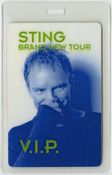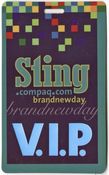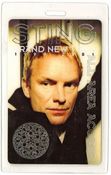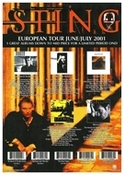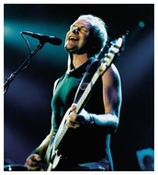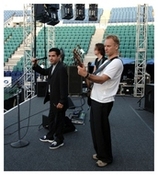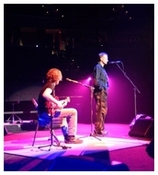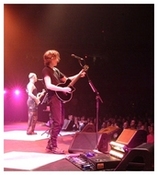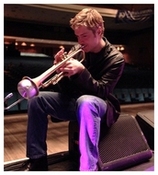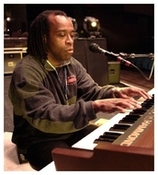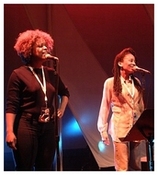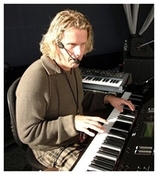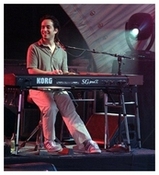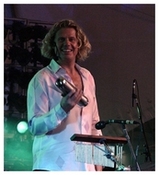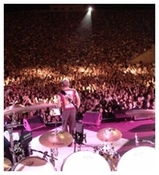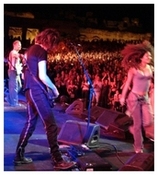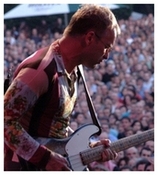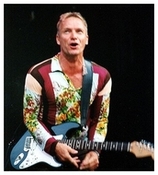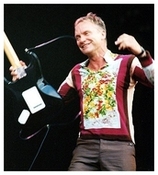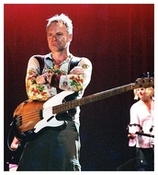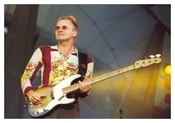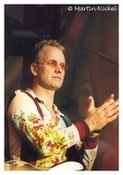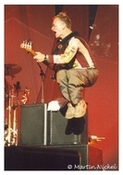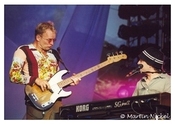
Brand New Day
A musical open-air duel without real rivals...
"Want to buy a rose?" The Tamil flower seller has positioned himself somewhat awkwardly in the middle of the August Bridge. Business is bad anyway - onlookers aren't exactly rose lovers. But why does this man put himself through this? In one ear, the melodic "Englishman in New York" from the Old Town, in the other, from the Neustadt Elbe bank, filthy rants about practiced sexual intercourse in the brutal pogo-like rhythm of "I want to fuck you." Our flower man has positioned himself exactly where Sting and Die Ärzte will acoustically clash this evening. Yet at the bridge location, you only have to take a few steps here or there to choose one of the concerts to listen to and be spared the other. Most people without tickets can't see anything anyway. But for many, just hearing and experiencing it is enough. Outside the concert barriers, there are probably just as many people as in front of the stages.
On this super-mild Friday evening, Dresden is a festival, full of people who have settled down with blankets, wine, and cookies on the Elbe meadows or around the Hofkirche, standing at sausage stands and beer stalls, strolling through the crowd.
Saxony's state capital isn't exactly well-stocked with rock and pop highlights anyway, and on top of that, two of the biggest open-air concerts of the year are taking place on the same evening just a few hundred meters apart. Great planning.
You could, of course, make a duel out of it, pointing out that Sting was musically more impressive but still had free seats. That Die Ärzte sold out, played much longer for much less money, and created a more party atmosphere. All that. But Sting and Die Ärzte are in different leagues, probably better not to be judged on the same Richter scale. Was there even anyone who couldn't decide whether to go here or there?
Actually, they're more like different disciplines. For stepping out of oneself and listening within. This is already evident in the audience's phenotype. At Die Ärzte, the youth practice showmanship—not all of them, but many. Their hair is brightly dyed, their piercings freshly polished, and a cool slogan on their T-shirt: "Headfirst into Hell" is the motto, or "Punk is my religion." Of course, there are plenty of "bitches," even "drink-hungry" people, and even someone who proclaims on his chest: "I despise young people."
From the very first moment, the Ärzte crowd is on fire. Everyone is fidgeting, jumping, and throwing their arms up in the air. An evening to sing along to; everyone seems to know the lyrics, everyone knows that men are pigs, and women sometimes like a little bit of a beating. During the very first song, 15,000 voices scream "asshole" in unison; and it's a revelation. Things can't be that bad for the youth who do such things. The swear word in question belongs to a song in which a bald man with a right-parted head is told that his combat boots are actually just longing for affection and that he's otherwise an asshole. Now, you shouldn't necessarily interpret an Ärzte concert as a political manifesto. But something like that is reassuring.
With Sting, you don't have to pay attention to such messages. They're the more unsuspecting, peaceful, and sentimental ones anyway. Compared to the tempo of the Ärzte, his musically magnificent group seems to be playing with the handbrake on. Which isn't necessarily a bad thing. But it seems more contemplative, more measured, more meaningful, more mature. The audience, the young-at-heart faction, is just as enthusiastic as the one on the other side of the Elbe. But does that mean you have to freak out? The most colourful ones here are a few promo girls with porn-red wigs from the radio station Jump. They hand out cardboard lanterns to create a cosy atmosphere when the lighters go off.
Over at Die Ärzte, drummer Bela B. wears little devil horns, climbs around on the drums, and constantly throws his drumsticks into the crowd. Sting wears wire-rimmed glasses, his knees constantly bounce slightly when playing bass, and his guitarist once throws his pick into the audience after an acoustic guitar solo on "Fields Of Gold." Over there, it's a folk festival, where the girls—as is customary at Die Ärzte concerts—throw their bras onto the stage. "Hip, hip, hooray, everything is great, everything is wonderful." Over here, it's a cultural experience: "How Fragile We Are." And the crowd needs time to warm up.
Sting, who was almost a fun punk as a Policeman, starts off moderately and a bit complicated. But after 45 minutes, he too has electrified the crowd with the good old "I-Oooh-I-Oooh," "Every Little Thing She Does Is Magic," and so on. And it turns into a wonderful evening under the half moon in front of the opera.
Sting even knows a few lines of German and sings Brecht: "And the shark, he has teeth" – something with a certain sophistication. Die Ärzte try their hand at "Fuchs, du hast die Gans verhindert." Two worlds. A duel without opponents. Die Ärzte make a joke of it, cracking jokes about Mr. Sting, or incorporating him into the lyrics; at one point, Sting's music is even played. Frontman Farin Urlaub, says Bela B., "not only looks better than Sting, he also smells better." And he greets the few people over there, "who came to see Sting and hear Die Ärzte." His fan base, of course, doesn't notice any of the wicked jokes, and apparently doesn't care either. While Die Ärzte say goodbye ("Maybe someone will go over and dry Sting's tears"), the Theaterplatz revels in "Every Breath You Take," gets an encore, and then has to call it a day. It's 11 p.m., and more isn't allowed, even on such an extraordinary evening. This, too, is Dresden.
(c) SZ Online by Heinrich Löbbers

